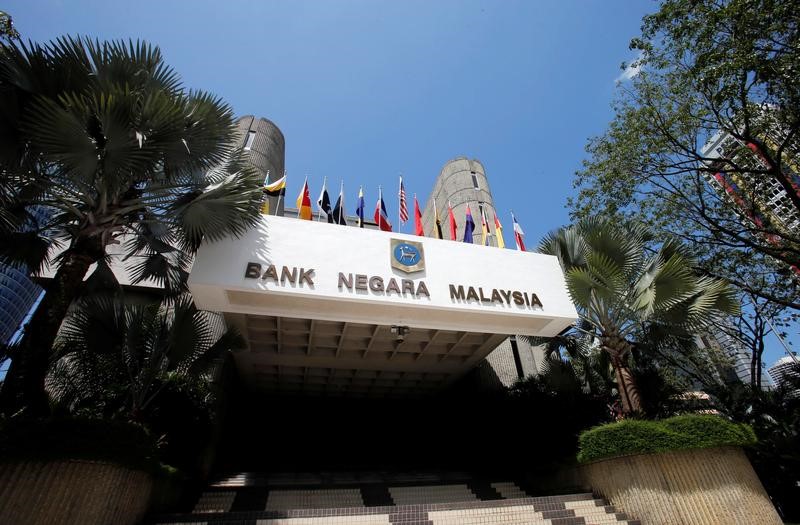By Saikat Chatterjee and Praveen Menon
HONG KONG/KUALA LUMPUR (Reuters) - Foreign banks in Malaysia on Thursday were trying to work out how to comply with the central bank's clamp-down on offshore ringgit trading, a move the broader market views as a form of capital controls.
Form letters, sent this week from onshore banks to their offshore counterparts, asked compliance officers to sign commitments to cease trading the ringgit in the NDF markets and then send the letters back to Bank Negara, Reuters reported on Wednesday.
"There's a massive back and forth going on between banks and Bank Negara Malaysia (BNM) now," said a banker at a foreign bank in Malaysia that deals in foreign currency transactions. "This is a type of indirect capital control ... I see a flood of people exiting Malaysia."
The ringgit
Investors typically use the liquid NDF markets in Singapore and Hong Kong to exchange ringgit for dollars because of the many restrictions in the domestic market.
Singapore and Hong Kong are ranked third and fourth at $517 billion and $437 billion respectively on global daily average turnover of foreign exchange derivatives, according to the latest survey from the Bank of International Settlements. The United States and Britain are the top two.
'STATE OF LIMBO'
While Malaysia allows foreigners relatively open access to its domestic bond and stock markets, it prohibits any offshore trading of its currency or related derivatives.
Some foreign banks said they were told their investments cannot be moved out of Malaysia if they don't sign the letter. The head of trading at a Western Bank in Hong Kong described the situation as "being in a state of limbo" due to the regulatory uncertainty.
"We have been told that we cannot repatriate our money and our investments stay in Malaysia if we don't sign," he said.
The bankers asked for anonymity due to the sensitivity of the subject.
Foreign holdings account for 40 percent of the total outstanding bond market in Malaysia, one of the largest foreign ownerships in Asia.
Foreigners have been fleeing the Malaysian market in a global bond rout following Donald Trump's election as U.S. President last week, which sent the dollar soaring and has hit emerging market currencies particularly hard.
PUNITIVE ACTION
Bank Negara Malaysia has asked financial institutions to provide a detailed plan if they need to make ringgit transactions onshore and to seek help from Malaysian financial institutions for any foreign exchange transaction needs.
The central bank on Wednesday warned it could act against lenders who do not comply with the measures.
"We can take (punitive action) as they will be breaching the Foreign Exchange Administration (FEA)," Assistant Governor Adnan Zaylani told reporters in a Wednesday briefing.
"We can even take criminal or administrative action (against them)," he was quoted saying by state news agency Bernama.
Bankers, however, say Bank Negara has no oversight over trades outside its jurisdiction.
Malaysia was one of the only countries to impose capital controls during the 1997-98 Asian financial crisis by fixing the exchange rate and requiring the currency be held at least a year after the sale of Malaysian securities or assets in the country. It was widely viewed as a major contributing factor to its subsequent economic recovery.
Foreign investors pulled 8.4 billion ringgit out of government bonds in September, the largest outflow since August last year when Malaysia's markets tumbled on a political crisis swirling around Prime Minister Najib Razak and corruption allegations involving indebted state fund 1Malaysia Development Berhad (1MDB).

In October, however, there were inflows of 2.39 billion ringgit into government bonds, and foreign reserves rose to $97.8 billion by the end of the month, up from $97.7 billion at the end of September. The reserves were enough to finance 8.4 months of retained imports.